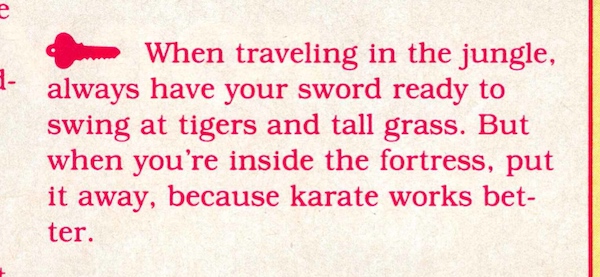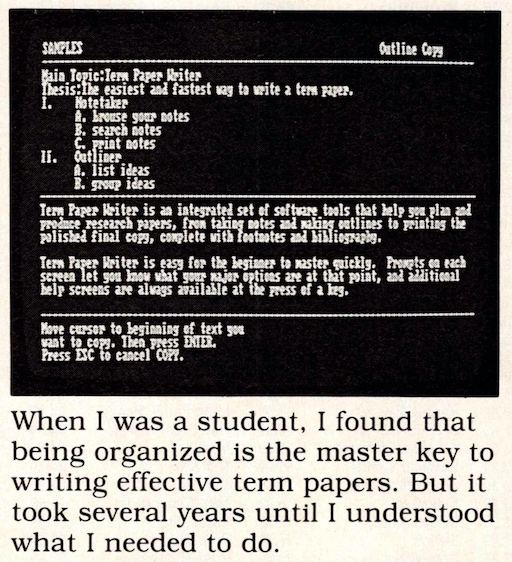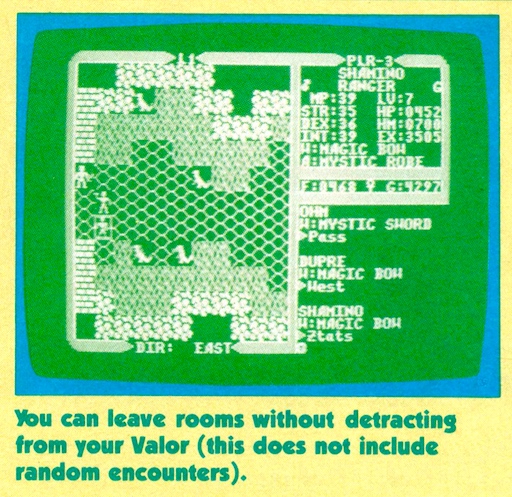More thoughts about stuff and things
Nov. 17th, 2025 04:09 pm"This ping-pong table: I have trouble just walking and holding a glass, so I am definitely done playing sports. This table needs to be with someone else."
"These books: They look nice on a shelf, but my vision's not good enough to read such small print. The most rewarding thing I can do with them now is enjoy the act of giving them away, to people who would be grateful."
"These nice clothes: They look good on me, but if I'm honest, I can't be arsed to go to fancy events that would mandate them. Besides, shoelaces, and buttons, and neckties, are a nuisance now. I'll make them into gifts."
"This truck: My wife doesn't like it, and recently the DMV said I was no longer qualified to safely drive. I'll never need it again. Time to get rid of it."
"All these tools in the garage: I use them to repair stuff. Do I want to spend my limited time repairing stuff? Especially now that my concentration and coordination are this shaky? Not ever again. Time to give them away."
The end-goal, which he never quite reached, was to have empty bookshelves, an empty garage, an empty driveway, and empty closets. It was a smart thing to do, and in his case it was complementary to what was happening in his mind, which was also being slowly emptied by dementia. One of the best things you can do to fight dementia is to engage socially, and asking the people you know if they might like some free stuff is a great excuse for it. Just about everyone likes free stuff. So come on over and let's chat for a bit while you muscle this ping-pong table into your car.
 Popular culture has recently extruded a quirky little growth of books and videos about "Swedish Death Cleaning," based on the common problem that Americans have with spending too much time seeking and maintaining piles of stuff, and the quaint feeling that anything Swedish must be a clever, less-stressful alternative to anything American. We love having space and we love accumulating piles of material goods onto that space, and in multiple ways that makes America the envy of most of the world, where space or material goods - or both - are very expensive. But our typical approach to everything good, is to do it until it's so incredibly over-done it flips around and becomes evil. So what do we do when we're drowning in piles of stuff, for example, too many books? We buy a book explaining how to solve the problem. Which is why I think the opening sentence of every book and video about "Swedish Death Cleaning" should be: "First thing, return this item, and get your dang money back."
Popular culture has recently extruded a quirky little growth of books and videos about "Swedish Death Cleaning," based on the common problem that Americans have with spending too much time seeking and maintaining piles of stuff, and the quaint feeling that anything Swedish must be a clever, less-stressful alternative to anything American. We love having space and we love accumulating piles of material goods onto that space, and in multiple ways that makes America the envy of most of the world, where space or material goods - or both - are very expensive. But our typical approach to everything good, is to do it until it's so incredibly over-done it flips around and becomes evil. So what do we do when we're drowning in piles of stuff, for example, too many books? We buy a book explaining how to solve the problem. Which is why I think the opening sentence of every book and video about "Swedish Death Cleaning" should be: "First thing, return this item, and get your dang money back."But I think of those books, when I think of what my Dad was doing. Around here, it's apparently so hard to counteract the desire for material goods that we can only succeed by invoking the finality of death itself. When you're gone, all this crap will still be here, but - and I guess this is really hard for people to internalize - you won't actually get any joy or utility from it, because your body is kind of an essential component. Physical objects are beholden to physical bodies, and no amount of mental attachment in the form of sentimentality or stubbornness can overcome that. If you apply this lesson about death to the lifetime that precedes it, you get the idea that you're are always paying a physical price, or taking on a physical debt, for every object you keep. The satisfaction you feel as you arrange and curate it, and marinate in the knowledge that it's there when you need it, gets smaller with time, but the object continues to require exactly as much space, and shelter, as always. Or if you neglect it, you eventually have to clean it up. At the same time, your own body gets harder to maintain, making the management of your stuff even more annoying. I think that's a big reason why this lesson is naturally easier for older people.
On the other hand, if you're the rebellious type, you might refuse to embrace it, and refuse harder every year, until your house and property are a grimy mausoleum of books and furniture and old letters and jars of urine...
Anyway, the point I'm trying to arrive at, is that personal experience and popular culture have both conditioned me to be very skeptical about accumulating stuff. I've found that it's very hard to get rid of, or just to let go of, and it's also hard to stop it from accumulating in the first place. There have been times in my life when I moved into a new living space and actively tried to fill it, just because I suddenly had empty rooms, or open shelves in the garage. It's fun! And plenty of times in the last decade or so, cruising around Oakland, when I've found free items and felt the urge to haul them home just because, hey, free stuff! I could re-stain this coffee table and it would look pretty good, and I could always use more plates and cups (except that honestly I couldn't.)
I'd like to sound wise and cool by saying that what I've truly embraced is experiences, rather than possessions. How mature! But no, the real motivation here is, dealing with stuff is just an absolute pain in the ass. It's the physical debt. It's inescapable. You can defer it for a very long time by, for example, buying a larger piece of property than you really need, and maintaining couple of extra rooms to heap the stuff into. Workshops and sewing rooms and libraries and personal "maker spaces" and so forth can be very pleasurable and useful as well, and if you're living with someone else, an extra private room for one or both of you can be essential. Having a hobby is one of the keys to a long life, and enjoying your older years, and I personally have two huge cabinets in the garage filled with bike parts and little electronic bits. But it is really easy to give time to the maintenance and curation, especially when it only feels like fun, and it's really hard to reclaim that time later on, when one bicycle and one shelf of parts has expanded to three - no, five - no, let's be honest, seven - bicycles and most of an entire garage of tools, spare parts, and working space. Good ol' Stephen King opined many years ago in a book about writing that art needs to be a support system for life, and if you have it the other way around, you're going to have problems. I feel like I'm constantly in danger of the same thing, except it's not art, it's just the material goods I might use to make art. Piles of it, growing organically like some malevolent compost heap.
Ironically, I never used to worry about this until I became a "property owner" (by which I mean, I took on a massive loan) and was suddenly completely responsible for maintaining an entire house. You'd think that since I could do anything I wanted with the space, I would feel free to cram it full of stuff. Well, perhaps if I didn't have that massive loan. To deal with the loan I've been renting almost all the space out to other people, and I'm being paid to maintain space for them instead of me. That means a garage full of tools, arranged into labeled boxes. And currently, it means all the rest of my materials for living part-time in Oakland are crammed into the garage as well, so I can maximize the rentable space. I guess it's not your typical "home owner" experience. I guess I've never actually had that experience. Property has meant much more responsibility than freedom, for me. But maybe that's had a positive effect overall because I've been forced to to learn the lesson about the physical debt of stuff.
This creates a cognitive dissonance sometimes. I feel like I'm expected by society around me to have a particular living space, because of my age. If you're 50 years old, shouldn't you have a house with a bunch of rooms, all your own, all deliberately furnished, with lamps and framed art, and a big dining room with seats for a whole party, and maybe a rug that really ties the place together? A den, a man-cave, a craft room? Plus a back yard, with a barbecue or a pool or both? If you have a living arrangement that's smaller, or you technically have the space but you're putting it to some other use (like renting it out), does that mean that you messed up somewhere along the way? College people and early adults can be expected to make do in apartments, living on top of each other, but by the time you're pushing out to the edge of middle-age, shouldn't you have "arrived" in a big, permanent, curated, possibly suburban, residence?
Here's the strange thing about that: I've had those things already. For like, years and years. I used to do Friday dinners with at least six people around the table like clockwork. I had a series of amazing kitchens, a series of dens, a series of man-caves, in different places. They were wonderful. I have great memories and a giant pile of photos. That all started in my late 20's and ran pretty consistently, until I began aggressively paring my stuff down. I gave away the dining room table in 2012, and downsized to one that seats four. Almost all the time, what I enjoy now is a meal with one other carefully chosen person. Almost all the time, my hobbies happen with equipment that occupies a space ranging from a table-top to about eight feet of shelving. Some external force keeps whispering to me that, if I really want to fit in with society, I need to expand that out again, and damn the expense. Kick all the tenants out and claim the den, dining room, and driveway, stock a pantry with bulk items, fill up all the walls with art, play my stereo much louder because no one is sharing any walls, and organize another series of dinner parties. Forget about being portable, and minimal. And when I hear that whisper, that expectation and the pressure behind it, something in me hisses back, "No! Shut up and go away! This is better!"
Which is odd, right? Because I really did like doing all that. When I first moved to Oakland I rented a five room flat, and my housemate and I filled all of it immediately. We both got craft rooms, and we muscled the giant table with room for eight into the dining room. Turns out the flat upstairs was a classic "punk house" though, where every single weekend was a giant party, so we didn't even need the table; we'd just walk upstairs. Either way, the space and the furniture felt essential, like we needed it to properly experience life. I hauled that table to two other houses, then at some point I can't remember, I must have decided it wasn't worth the work, and I needed to figure out what came next.
This is a kind of transition I run into, over and over: Society and culture implanted me with a bunch of long-term goals, and I spent many years chasing them down, building them up, and then having them accomplished - taking the metaphorical victory lap - and then I went skating ahead, into a place society and culture made absolutely no mention of, beyond the goal they are still, even now, stridently endorsing, and the message is so loud and constant that it makes me think the right thing to do is turn around and go back to where I was - the victory lap - and stay there, even though I don't actually want to. Just so I can stop feeling the cognitive dissonance of this loud message. When everyone around you seems to be clamoring for something you don't want, how can you help but ask, "What's wrong with me?"
I think in my case, it's the awareness of death that caused me to "go wrong", combined with an ever-increasing awareness of the much longer arc of history that created the world I grew up in. Like, when you grow up in a house with separate bedrooms and a giant dining room table, that feels like your goal; and then you learn that your longer family history involves growing up with 13 siblings jostling around in a two-room cabin on a farm, or ditching all their possessions except a couple of suitcases to board a ship for another continent. And then you start looking at that giant dining room table with a more critical eye. Is it there because you need it, to have a real life? Or because your grandparents dreamed of having one, and now you get to make your own decision? Awareness of death has taught me that the most important factor, in whatever you decide, is whether it will get you more time with the people you love, or second to that, more time doing what you love.
It bites you in the end: It's possible to spend a whole lot of your time and money managing the stuff you think you need for a hobby, or just a level of material abundance that will make you feel successful, and in the meantime the chances you get to do stuff with the people you like - the people who really know you, and get what you're about - get smaller, and shorter, and then bodies fail or accidents happen and the chance is completely gone. You'll still have that organized workshop, that amazing classic car you rebuilt by hand, that house full of extremely well-matched furniture, but you'll eventually only have enough time to start figuring out who's left that you can pass it to, aside from indifferent strangers.
Dealing with this is a challenge! Because like I said, hobbies are vital. And it's a good challenge, honestly, because it's something you get to worry about only after you've avoided starving to death, succumbing to disease, or getting run over by an oxcart. It's led me lately to ask the question, am I going to go for a big career change, like I've been contemplating the last five years or so? Maybe it's time...

 We can try to reach intelligent aliens with radio waves or lasers or similar, but the dialogue would still be too slow.
We can try to reach intelligent aliens with radio waves or lasers or similar, but the dialogue would still be too slow. But in the meantime, if humans escaped the confines of the solar system and began to terraform and rearrange the stars in the galaxy ... followed by other galaxies ... would the aliens observe this, and interpret us as some kind of defect in the medium? Mold on the paper? A rare but annoying quality control problem?
But in the meantime, if humans escaped the confines of the solar system and began to terraform and rearrange the stars in the galaxy ... followed by other galaxies ... would the aliens observe this, and interpret us as some kind of defect in the medium? Mold on the paper? A rare but annoying quality control problem? Seven years is probably too long to wait for the exercise to really be useful, but I’m doing it anyway since I have a few thoughts.
Seven years is probably too long to wait for the exercise to really be useful, but I’m doing it anyway since I have a few thoughts. People learning about evolution sometimes ask, "Why aren't animals immortal?" The answer is, the world keeps changing, and life needs to create new bodies to deal with it. What we really want when we ask for immortality is one constantly renewing body, running all the amazing interconnected systems that we're used to, and that convince us we are alive from one day to the next, without interruption. ... Well, except for sleep, which is a weird exception we have decided to embrace, since going without sleep really sucks.
People learning about evolution sometimes ask, "Why aren't animals immortal?" The answer is, the world keeps changing, and life needs to create new bodies to deal with it. What we really want when we ask for immortality is one constantly renewing body, running all the amazing interconnected systems that we're used to, and that convince us we are alive from one day to the next, without interruption. ... Well, except for sleep, which is a weird exception we have decided to embrace, since going without sleep really sucks. Then I realized, the only way to frame an answer is by considering the act of programming within the act of communicating via language, which is something humans have been doing in very complex forms since there were humans, and in less complex forms before that.
Then I realized, the only way to frame an answer is by considering the act of programming within the act of communicating via language, which is something humans have been doing in very complex forms since there were humans, and in less complex forms before that. Complex arrangements of matter can be described as complex arrangements of probabilities in space, but that's not the whole story either, because space itself is flexible. We usually just assume three solid dimensions where everything happens in one connected place (i.e. the universe), because medium-scale math usually works for that, and because we evolved to see things that way, but physics experiments this last century have forced us to accept that the truth is far messier. Get far enough away from your neighbor, and you could both be going down different legs of the Trousers Of Time. Get back together, and you might find that, for example, your watches no longer show the same number. Not only was your experience different, the amount of your experience was different.
Complex arrangements of matter can be described as complex arrangements of probabilities in space, but that's not the whole story either, because space itself is flexible. We usually just assume three solid dimensions where everything happens in one connected place (i.e. the universe), because medium-scale math usually works for that, and because we evolved to see things that way, but physics experiments this last century have forced us to accept that the truth is far messier. Get far enough away from your neighbor, and you could both be going down different legs of the Trousers Of Time. Get back together, and you might find that, for example, your watches no longer show the same number. Not only was your experience different, the amount of your experience was different. Think too hard about it, and consciousness starts to disappear. You feel like a skipping record. You end up obsessing about the moment you were in 20 years ago, or the moment happening to your friend Bill, or to a rock, or to thin air. How does it feel to be conscious as a thing that has no senses, and no metabolism? It doesn't feel any way at all, obviously. But we obsessively imagine it anyway. It's a habit. All this thinking is still chemistry of course but it's an interesting diversion.
Think too hard about it, and consciousness starts to disappear. You feel like a skipping record. You end up obsessing about the moment you were in 20 years ago, or the moment happening to your friend Bill, or to a rock, or to thin air. How does it feel to be conscious as a thing that has no senses, and no metabolism? It doesn't feel any way at all, obviously. But we obsessively imagine it anyway. It's a habit. All this thinking is still chemistry of course but it's an interesting diversion. In the first chapter of this book I came across an interesting quote. "We are the average of the five people we spend the most time with." That's pithy. It also tickles my list-making brain. Who do I spend the most time with, mentally speaking?
In the first chapter of this book I came across an interesting quote. "We are the average of the five people we spend the most time with." That's pithy. It also tickles my list-making brain. Who do I spend the most time with, mentally speaking? Well, you have something in common with Benjamin's giant mixed-message of a book here, which is telling you that you should mercilessly and methodically reconfigure your social life, your living space, your geographical location, your choice of romantic partners, and your choice of food and hobbies, for MAXIMUM ACCOMPLISHMENT. And that furthermore, that pursuit is the only valid and true path to happiness: Maximum specific accomplishment. Don't hang out around those damn loser video game people, because those people are LIVING A LIE!
Well, you have something in common with Benjamin's giant mixed-message of a book here, which is telling you that you should mercilessly and methodically reconfigure your social life, your living space, your geographical location, your choice of romantic partners, and your choice of food and hobbies, for MAXIMUM ACCOMPLISHMENT. And that furthermore, that pursuit is the only valid and true path to happiness: Maximum specific accomplishment. Don't hang out around those damn loser video game people, because those people are LIVING A LIE! We're asking why alien dumptrucks haven't showed up orbiting Earth, demanding coal or uranium or whatever, to feed their hungry engines. We're asking why space isn't echoing with radio signals from all directions, as aliens yell at each other through a medium that takes tens or hundreds of years per exchange. Burning extracted resources for energy and using radio to communicate is the current obsession of modern humanity. But will it be forever? In the meantime, aren't we just projecting our own obsessions onto alien life?
We're asking why alien dumptrucks haven't showed up orbiting Earth, demanding coal or uranium or whatever, to feed their hungry engines. We're asking why space isn't echoing with radio signals from all directions, as aliens yell at each other through a medium that takes tens or hundreds of years per exchange. Burning extracted resources for energy and using radio to communicate is the current obsession of modern humanity. But will it be forever? In the meantime, aren't we just projecting our own obsessions onto alien life? I've only had a handful of dreams about this ex, but this was the second I'd had in less than a week. Recounting it the next morning, it felt appropriate somehow that she had devised a way to get rid of me that involved jerking me around with poor communication. In the dream I felt degraded and worthless, as though by being career-focused and having a successful career - making more money than me even - she was part of an elite social group that I, with my only semi-serious attitude towards career, was not welcome in.
I've only had a handful of dreams about this ex, but this was the second I'd had in less than a week. Recounting it the next morning, it felt appropriate somehow that she had devised a way to get rid of me that involved jerking me around with poor communication. In the dream I felt degraded and worthless, as though by being career-focused and having a successful career - making more money than me even - she was part of an elite social group that I, with my only semi-serious attitude towards career, was not welcome in. People who have done some traveling across the first wilderness - especially if it's for fun - just love to creep into conversations and point out features of the second wilderness, all the time believing they are saying something meaningful, accurate, and wise about the first. They sorely want it to be true. Sometimes, sounding knowledgeable in the power play of the conversation at hand is what matters. We all love to play the wise mentor role.
People who have done some traveling across the first wilderness - especially if it's for fun - just love to creep into conversations and point out features of the second wilderness, all the time believing they are saying something meaningful, accurate, and wise about the first. They sorely want it to be true. Sometimes, sounding knowledgeable in the power play of the conversation at hand is what matters. We all love to play the wise mentor role. Here's a handy statistic to help your perspective: 2.4 percent of the world population uses Twitter. Of those users, ten percent of them generate 90% of Twitter's content. When you look at Twitter and think of "the world", you are swimming in a sea created almost exclusively by one fifth of one percent of the population, and utterly ignored - or only seen second-hand - by everyone else on Earth. (Me included.)
Here's a handy statistic to help your perspective: 2.4 percent of the world population uses Twitter. Of those users, ten percent of them generate 90% of Twitter's content. When you look at Twitter and think of "the world", you are swimming in a sea created almost exclusively by one fifth of one percent of the population, and utterly ignored - or only seen second-hand - by everyone else on Earth. (Me included.)















 There was a book in Germany published a few years back that talked about the real core of this problem, which is cultural transference -- something related to, but not the same as, assimilation. I can't remember the name of the book, but it caused a stir because it appeared to advocate for the closing of German borders against immigrants, because the German government and people had essentially failed to do enough outreach to the migrant population living in Germany to integrate them with German culture. Instead they were living in ever-expanding pockets of culture that had been imported from abroad and were kept separate by language and geographic and regulatory borders. The loudest critics of the book - who generally had not even bothered to read it - dismissed it categorically as an endorsement of racism. But it was really about a failure of native Germans to deliver on their own lofty ideals.
There was a book in Germany published a few years back that talked about the real core of this problem, which is cultural transference -- something related to, but not the same as, assimilation. I can't remember the name of the book, but it caused a stir because it appeared to advocate for the closing of German borders against immigrants, because the German government and people had essentially failed to do enough outreach to the migrant population living in Germany to integrate them with German culture. Instead they were living in ever-expanding pockets of culture that had been imported from abroad and were kept separate by language and geographic and regulatory borders. The loudest critics of the book - who generally had not even bothered to read it - dismissed it categorically as an endorsement of racism. But it was really about a failure of native Germans to deliver on their own lofty ideals. Whether you place any value in being alive, beyond the programming of your survival instincts, is based on whether you believe there is a significant difference between these means: The appearance of life generated by physical chemistry, and the appearance of life generated by mathematical simulation.
Whether you place any value in being alive, beyond the programming of your survival instincts, is based on whether you believe there is a significant difference between these means: The appearance of life generated by physical chemistry, and the appearance of life generated by mathematical simulation. Your consistent existence in the physical world only has meaning in context: Where are you? Why are you here? What can you do now?
Your consistent existence in the physical world only has meaning in context: Where are you? Why are you here? What can you do now?










